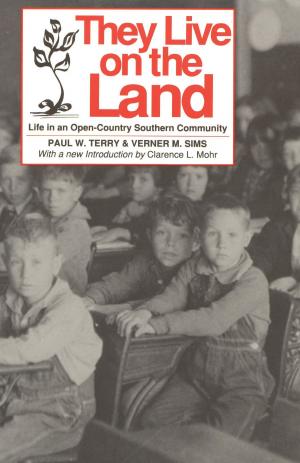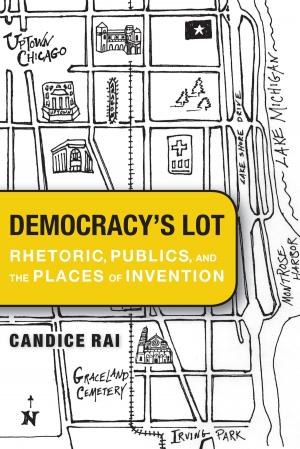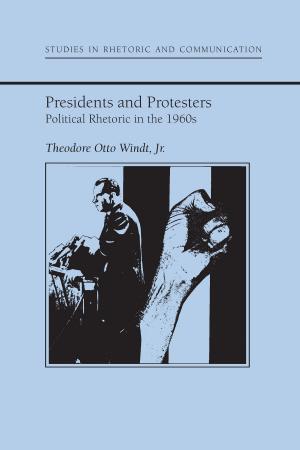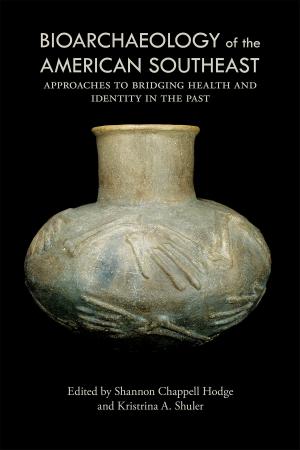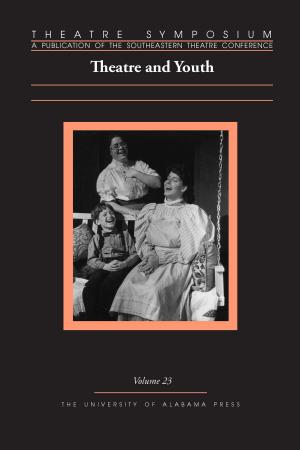Cussing Dixie, Loving Dixie
Fifty Years of Commentary by H. Brandt Ayers
Nonfiction, Reference & Language, Language Arts, Journalism| Author: | H. Brandt Ayers, Carol Nunnelley | ISBN: | 9780817389307 |
| Publisher: | University of Alabama Press | Publication: | November 30, 2015 |
| Imprint: | University Alabama Press | Language: | English |
| Author: | H. Brandt Ayers, Carol Nunnelley |
| ISBN: | 9780817389307 |
| Publisher: | University of Alabama Press |
| Publication: | November 30, 2015 |
| Imprint: | University Alabama Press |
| Language: | English |
Cussing Dixie, Loving Dixie: Fifty Years of Commentary by H. Brandt Ayers collects in one volume the essential writing of the legendary publisher and editor of the Anniston Star.
The decades-long ribbon of prose that spilled from Ayers’s pen captured the epochal milestones of our times, such as the 1965 March on Washington, the civil rights movement, the rise and decay of the New South movement, the South’s transformation from a bulwark of Democratic entropy to a heartland of irascible conservatism, and the election of the republic’s first black president.
Cussing Dixie, Loving Dixie: Fifty Years of Commentary by H. Brandt Ayers includes Ayers’s unforgettable descriptions of the political giants of Alabama’s turbulent twentieth century. Of George Wallace he wrote: “He lost his way in the swamp of racial politics, squandered his great talent for leadership, and, cruelly, has made his most devoted followers bear the consequences.” And Ayers memorably hymned Supreme Court justice Hugo Black as having “made of the Bill of Rights a trumpet which kept calling the nation back to its original purpose.”
Ayers was so known for his passionate crusade for a fair deal for “the plain people of both races” of Alabama that enemies dubbed his family’s newspaper “The Red Star.” A loyal son of Alabama who extolls Southern culture, Ayers unapologetically calls for Alabamians to cast off the moribund ideologies of the past. He jousts against obscurantism itself: “When fear and ignorance snuff out the brains of a man,” he thunders, “he is reduced to the level of a jungle predator—a flexed mass of instincts.”
Writing from a generous heart, Ayers enlivens and enlightens. Eschewing the hifalutin, his artful writing is both accessible to the people and admired by the learned. Far from provincial, his far-ranging eye landed often on global events, and he persuasively frames the state and region as an active front on which key national issues hang.
Ayers ranks among the most prolific and insightful chroniclers of twentieth- and twenty-first-century Alabama. Cussing Dixie, Loving Dixie: Fifty Years of Commentary by H. Brandt Ayers is a monument to his enduring legacy and relevance.
Cussing Dixie, Loving Dixie: Fifty Years of Commentary by H. Brandt Ayers collects in one volume the essential writing of the legendary publisher and editor of the Anniston Star.
The decades-long ribbon of prose that spilled from Ayers’s pen captured the epochal milestones of our times, such as the 1965 March on Washington, the civil rights movement, the rise and decay of the New South movement, the South’s transformation from a bulwark of Democratic entropy to a heartland of irascible conservatism, and the election of the republic’s first black president.
Cussing Dixie, Loving Dixie: Fifty Years of Commentary by H. Brandt Ayers includes Ayers’s unforgettable descriptions of the political giants of Alabama’s turbulent twentieth century. Of George Wallace he wrote: “He lost his way in the swamp of racial politics, squandered his great talent for leadership, and, cruelly, has made his most devoted followers bear the consequences.” And Ayers memorably hymned Supreme Court justice Hugo Black as having “made of the Bill of Rights a trumpet which kept calling the nation back to its original purpose.”
Ayers was so known for his passionate crusade for a fair deal for “the plain people of both races” of Alabama that enemies dubbed his family’s newspaper “The Red Star.” A loyal son of Alabama who extolls Southern culture, Ayers unapologetically calls for Alabamians to cast off the moribund ideologies of the past. He jousts against obscurantism itself: “When fear and ignorance snuff out the brains of a man,” he thunders, “he is reduced to the level of a jungle predator—a flexed mass of instincts.”
Writing from a generous heart, Ayers enlivens and enlightens. Eschewing the hifalutin, his artful writing is both accessible to the people and admired by the learned. Far from provincial, his far-ranging eye landed often on global events, and he persuasively frames the state and region as an active front on which key national issues hang.
Ayers ranks among the most prolific and insightful chroniclers of twentieth- and twenty-first-century Alabama. Cussing Dixie, Loving Dixie: Fifty Years of Commentary by H. Brandt Ayers is a monument to his enduring legacy and relevance.


